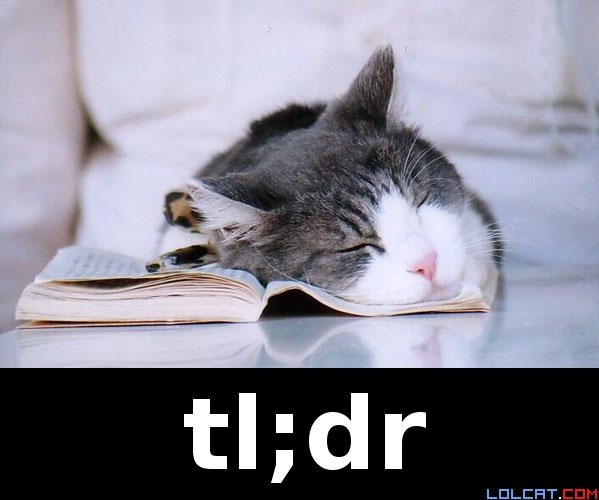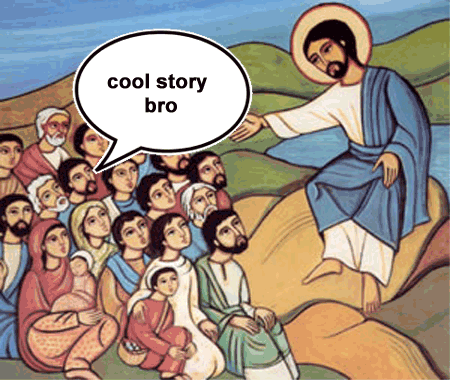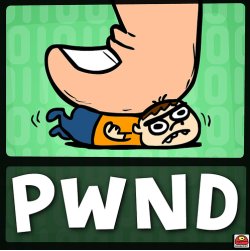- Joined
- Mar 28, 2010
- Messages
- 1,025
- Reaction score
- 140
This is my first post on this site, and it's a long one, but if anyone of you has the time, I'd appreciate it if you'd read it and lend me your thoughts.
I heard something very interesting today while listening to a psychology lecture on my iPod. The lecturer, Professor Daniel Robinson, spoke of Skinnerian behaviorism and sought to divulge its concepts through a rather engaging anecdote. Professor Robinson, an esteemed psychology professor and adjunct philosophy professor at Georgetown University, related how he had often enjoyed the activity of advising young freshmen undergraduates on what courses they were to take that semester. He said that this activity, in hindsight, quite effectively illustrated Skinnerian conditioning, better known as classical conditioning.
The anecdote (the general flow of events often repeated in the Robinsons career) went something like this:
The student would come in with a tentative plan of his academic semester. Robinson would remark, My, youre taking many biology and chemistry courses. Why is that?
The student then would respond, Oh, Im pre-med.
Robinson would then inquire, So you want to be a doctor. When did you decide that?
Oh, Ive always wanted to be a doctor.
Really? Always? Even when you were 2 years old?
Well no, of course not, but certainly as far back as I can remember.
Let me guess, one of your parents was a doctor.
No.
One of your other relatives then, an uncle perhaps.
No, I have no doctors in the family. This decision rests totally of my own volition.
The anecdote ends here, but Robinson goes on to point out that despite the impression that every one of these students has in regards to the purity of his own autonomy in making this decision, it was much more likely that the decision was in a sense, made for him.
The decision to be a doctor is not an obviously easy one to make. Granted that one believes in ones physical, intellectual, and emotional ability to carry out the tasks associated, one must still consider the time, energy, and sacrifices that medicines extended educational process requires. Given this set of conditions, Robinson believes that the forces that go toward an affirmative decision in this instance can only derive from powerful external influences.
He suggests the following set of hypothetical events:
Suppose a six year old child Billy had just come home after spending the day with his friend Johnny, whose father, a fireman, had agreed to let them hang out down by the fire station where Billy and Johnny had seen the men in action: responding to an alarm, suiting up quickly, jumping in the truck, blazing the horn, and thrusting down the street. Billy thought that this was the coolest thing hed ever seen and so when he gets back to his house, he comes in the front door, and loudly declares to his parents,
Mom, Dad, Im going to be a fireman.
The parents brush this off, Thats nice dear. Now make sure you wash your hands before supper.
After a few weeks of fireman craze, Billys interest eventually wanes. Billy grows up a little. Now hes 10 years old. He goes to a baseball game one day. The pitcher pitches a no-hitter during a crucial game and the fans, coaches, and players all go wild over him. Billy comes home and excitedly exclaims,
Mom, Dad, Im going to pitch for the New York Yankees.
The parents again brush this off, Thats nice dear. So does everyone else. Now make sure you wash your hands before supper.
After a few months more of watching the Yankees and dreaming about pitching for them, Billy shifts the thought to the back of his mind and files it under, impossibilities. Billy grows up a little more. He hits 12. One day, he comes home after having just dissected his first rat in biology class. He sits down to eat supper, but doesnt say much. While everyone else around the dinner table exchanges exclamations, anecdotes, and reports, Billy remains taciturn. Hes still in somewhat of a visceral haze after having cut open the thorax of the animal and held its nerve and connective tissues in hand. After a while, Billys parents notice his condition and remark,
Youre quiet today.
Billy looks at his parents, then looks forward again in a rather philosophically disposed expression and dryly states, I think I want to be a surgeon.
At this declaration, Billys parents look at each other glitteringly. Then while beaming at Billy, they exclaim, Thats great Billy! We always knew youd be a great and important someday! Lets go over your class schedule at school after supper and make sure youre in the right classes.
Now, the point of this set of anecdotes is not to say of course that parents are the sole determinants of a childs life-trajectory. But it does indicate that the decisions we make are not solely our own, that they are in fact influenced heavily by external forces. Moreover, perhaps the most important point here is that theres no easy and reliable way to determine whether such decisions are in fact solely due to the rational and willful powers we bestow upon ourselves or whether they are instead remnants of a set of long-standing Skinnerian carrots and sticks.
The college freshman in the first anecdote fully believes that his desire to become a doctor came totally of his own volition. Yet, its not difficult to imagine that he is, in fact, Billy at the age of 18, whose career trajectory has gone down the same path for 6 years, long enough for him to forget why he originally got on the path in the first place, or perhaps more importantly, that there was at one time the existence of alternatives that were simply not reinforced the same way.
This train of thought reminds me of the epilogue of Leo Tolstoys War & Peace, in which Tolstoy espouses the validity of historical determinism, or in a more common (but overly connotation-heavy) sense of the concept, the existence of fate. He argues that leaders like Napoleon or Tsar Alexander are attributed a disproportionate amount of the responsibility for such historical trends and events.
In other words, Napoleon did not lose to Kutuzov in Russia. Napoleon did not cause the annihilation of his army on their frozen retreat. Tolstoy reasons in short as such, that these grand leaders are only presented with a certain finite amount of circumstances with which they have to decide on a course of action given a certain amount of resources and a certain amount of aptitude. These decisions are decidedly limited in their capacity to produce change without the support and consent of enormous ranks of wills. That being said, there are undoubtedly a large number of orders and commands issued or willed by Napoleon that were never carried out either because of resource constraints or the fact that such commands found no support or consent in the aggregate wills of his soldiers. This explains the undisciplined rank-breaks and lootings that happened after such victories as Moscow.
What impact does this have on career choices then? What does it say about ones choice to become a physician? Some would say that it taints it. This is especially the impression that higher education admissions committees emanate. Such a sentiment cannot possibly be discounted for in Professor Robinsons anecdotal recitation. This seems to be a decidedly American cultural phenomenon, which says that one should, within reason, choose ones career based on the passion one has for that career, and that considerations such as money, status, prestige, or side benefits should have minimal influence.
However, as Professor Robinson has suggested, passion does not develop out of a vacuum. Rather, it is shaped by external forces which are then reinforced through further external forces. Yet, at the time of application, the medical school candidate cannot or is unwilling to face or disclose the fact that they are not in fact the schools ideal poster-student of passion, commitment, compassion, understanding, and zeal, that they havent lived a life conducive to shaping them in that way, and that theres no readily available remedy for such a deficiency in their qualifications.
So what ends up happening a lot of the time is that the candidate searches his/her memory for some story like how they found an injured rabbit on the side of the road one day, rehabilitated it back to health, and somehow convinces him/herself that this experience somehow made them realize he/she had always wanted to be a doctor. Either that or you get the freshman in the first anecdote who had always known they had wanted to be a doctor. Of course, theres no doubt that admissions committee members are very cognizant of this dynamic, having been exposed to it countless times. Even still, schools almost encourage applicants to loftily euphemize rather than truthfully introspect, resulting in a cooperative effort to uphold the illusion of the ideal.
What I want to ask is not the effect that the breaking of such an unspoken contract may mean for either the ideal image or the resulting number of physicians, but I suspect that one or the other will have to diminish as a result. Instead, I want to ask what effect this produces on the individual medical candidate, who, if he/she is anyone like Billy the average medical school candidate, must traverse a notably long and rough path as a result of social-conditioning that he/she may or may not be aware of.
If he/she is not aware of the influence of social conditioning, or is somehow in denial of it, then I believe that he/she one day will come to realize or face the fact. For those who still like medicine, this may not faze them. For those who hate it, this is truly a tragedy, considering all the financial and social investments that have gone into their education, not to mention the opportunity cost of time, friends, family, other passions, etc.
If he/she is aware of such influence, then it produces a conundrum. Its not the case that they can easily discount medicine upon this knowledge, for to do so is to pretend that such external social influences and conditioning does not matter. The truth is that we are conditioned from birth, and it is a fool who believes that one can escape or discount it. To discount medicine upon this knowledge is simply to trade one set of influences for another. If one determines that the latter set is more conducive for ones individual happiness, then the answer is obvious (if one is willing to bite the bullet to disappoint family): quit medicine and walk the other path.
If one determines that there is no other career choice that will be conducive to ones happiness, then the solution is less obvious. One could hold off the decision and in the meantime search for other opportunities and paths that may spark that passion. One could also take a leap of faith and hope that one comes to be passionate about it eventually. Still, in the meantime, one must essentially lie to an admissions committee, albeit it would be a case of lying through ones teeth. To me, this set of circumstances produces a conflict of interests in the individual candidate. Im in this boat, and right now, Im not sure what to make of it.
I heard something very interesting today while listening to a psychology lecture on my iPod. The lecturer, Professor Daniel Robinson, spoke of Skinnerian behaviorism and sought to divulge its concepts through a rather engaging anecdote. Professor Robinson, an esteemed psychology professor and adjunct philosophy professor at Georgetown University, related how he had often enjoyed the activity of advising young freshmen undergraduates on what courses they were to take that semester. He said that this activity, in hindsight, quite effectively illustrated Skinnerian conditioning, better known as classical conditioning.
The anecdote (the general flow of events often repeated in the Robinsons career) went something like this:
The student would come in with a tentative plan of his academic semester. Robinson would remark, My, youre taking many biology and chemistry courses. Why is that?
The student then would respond, Oh, Im pre-med.
Robinson would then inquire, So you want to be a doctor. When did you decide that?
Oh, Ive always wanted to be a doctor.
Really? Always? Even when you were 2 years old?
Well no, of course not, but certainly as far back as I can remember.
Let me guess, one of your parents was a doctor.
No.
One of your other relatives then, an uncle perhaps.
No, I have no doctors in the family. This decision rests totally of my own volition.
The anecdote ends here, but Robinson goes on to point out that despite the impression that every one of these students has in regards to the purity of his own autonomy in making this decision, it was much more likely that the decision was in a sense, made for him.
The decision to be a doctor is not an obviously easy one to make. Granted that one believes in ones physical, intellectual, and emotional ability to carry out the tasks associated, one must still consider the time, energy, and sacrifices that medicines extended educational process requires. Given this set of conditions, Robinson believes that the forces that go toward an affirmative decision in this instance can only derive from powerful external influences.
He suggests the following set of hypothetical events:
Suppose a six year old child Billy had just come home after spending the day with his friend Johnny, whose father, a fireman, had agreed to let them hang out down by the fire station where Billy and Johnny had seen the men in action: responding to an alarm, suiting up quickly, jumping in the truck, blazing the horn, and thrusting down the street. Billy thought that this was the coolest thing hed ever seen and so when he gets back to his house, he comes in the front door, and loudly declares to his parents,
Mom, Dad, Im going to be a fireman.
The parents brush this off, Thats nice dear. Now make sure you wash your hands before supper.
After a few weeks of fireman craze, Billys interest eventually wanes. Billy grows up a little. Now hes 10 years old. He goes to a baseball game one day. The pitcher pitches a no-hitter during a crucial game and the fans, coaches, and players all go wild over him. Billy comes home and excitedly exclaims,
Mom, Dad, Im going to pitch for the New York Yankees.
The parents again brush this off, Thats nice dear. So does everyone else. Now make sure you wash your hands before supper.
After a few months more of watching the Yankees and dreaming about pitching for them, Billy shifts the thought to the back of his mind and files it under, impossibilities. Billy grows up a little more. He hits 12. One day, he comes home after having just dissected his first rat in biology class. He sits down to eat supper, but doesnt say much. While everyone else around the dinner table exchanges exclamations, anecdotes, and reports, Billy remains taciturn. Hes still in somewhat of a visceral haze after having cut open the thorax of the animal and held its nerve and connective tissues in hand. After a while, Billys parents notice his condition and remark,
Youre quiet today.
Billy looks at his parents, then looks forward again in a rather philosophically disposed expression and dryly states, I think I want to be a surgeon.
At this declaration, Billys parents look at each other glitteringly. Then while beaming at Billy, they exclaim, Thats great Billy! We always knew youd be a great and important someday! Lets go over your class schedule at school after supper and make sure youre in the right classes.
Now, the point of this set of anecdotes is not to say of course that parents are the sole determinants of a childs life-trajectory. But it does indicate that the decisions we make are not solely our own, that they are in fact influenced heavily by external forces. Moreover, perhaps the most important point here is that theres no easy and reliable way to determine whether such decisions are in fact solely due to the rational and willful powers we bestow upon ourselves or whether they are instead remnants of a set of long-standing Skinnerian carrots and sticks.
The college freshman in the first anecdote fully believes that his desire to become a doctor came totally of his own volition. Yet, its not difficult to imagine that he is, in fact, Billy at the age of 18, whose career trajectory has gone down the same path for 6 years, long enough for him to forget why he originally got on the path in the first place, or perhaps more importantly, that there was at one time the existence of alternatives that were simply not reinforced the same way.
This train of thought reminds me of the epilogue of Leo Tolstoys War & Peace, in which Tolstoy espouses the validity of historical determinism, or in a more common (but overly connotation-heavy) sense of the concept, the existence of fate. He argues that leaders like Napoleon or Tsar Alexander are attributed a disproportionate amount of the responsibility for such historical trends and events.
In other words, Napoleon did not lose to Kutuzov in Russia. Napoleon did not cause the annihilation of his army on their frozen retreat. Tolstoy reasons in short as such, that these grand leaders are only presented with a certain finite amount of circumstances with which they have to decide on a course of action given a certain amount of resources and a certain amount of aptitude. These decisions are decidedly limited in their capacity to produce change without the support and consent of enormous ranks of wills. That being said, there are undoubtedly a large number of orders and commands issued or willed by Napoleon that were never carried out either because of resource constraints or the fact that such commands found no support or consent in the aggregate wills of his soldiers. This explains the undisciplined rank-breaks and lootings that happened after such victories as Moscow.
What impact does this have on career choices then? What does it say about ones choice to become a physician? Some would say that it taints it. This is especially the impression that higher education admissions committees emanate. Such a sentiment cannot possibly be discounted for in Professor Robinsons anecdotal recitation. This seems to be a decidedly American cultural phenomenon, which says that one should, within reason, choose ones career based on the passion one has for that career, and that considerations such as money, status, prestige, or side benefits should have minimal influence.
However, as Professor Robinson has suggested, passion does not develop out of a vacuum. Rather, it is shaped by external forces which are then reinforced through further external forces. Yet, at the time of application, the medical school candidate cannot or is unwilling to face or disclose the fact that they are not in fact the schools ideal poster-student of passion, commitment, compassion, understanding, and zeal, that they havent lived a life conducive to shaping them in that way, and that theres no readily available remedy for such a deficiency in their qualifications.
So what ends up happening a lot of the time is that the candidate searches his/her memory for some story like how they found an injured rabbit on the side of the road one day, rehabilitated it back to health, and somehow convinces him/herself that this experience somehow made them realize he/she had always wanted to be a doctor. Either that or you get the freshman in the first anecdote who had always known they had wanted to be a doctor. Of course, theres no doubt that admissions committee members are very cognizant of this dynamic, having been exposed to it countless times. Even still, schools almost encourage applicants to loftily euphemize rather than truthfully introspect, resulting in a cooperative effort to uphold the illusion of the ideal.
What I want to ask is not the effect that the breaking of such an unspoken contract may mean for either the ideal image or the resulting number of physicians, but I suspect that one or the other will have to diminish as a result. Instead, I want to ask what effect this produces on the individual medical candidate, who, if he/she is anyone like Billy the average medical school candidate, must traverse a notably long and rough path as a result of social-conditioning that he/she may or may not be aware of.
If he/she is not aware of the influence of social conditioning, or is somehow in denial of it, then I believe that he/she one day will come to realize or face the fact. For those who still like medicine, this may not faze them. For those who hate it, this is truly a tragedy, considering all the financial and social investments that have gone into their education, not to mention the opportunity cost of time, friends, family, other passions, etc.
If he/she is aware of such influence, then it produces a conundrum. Its not the case that they can easily discount medicine upon this knowledge, for to do so is to pretend that such external social influences and conditioning does not matter. The truth is that we are conditioned from birth, and it is a fool who believes that one can escape or discount it. To discount medicine upon this knowledge is simply to trade one set of influences for another. If one determines that the latter set is more conducive for ones individual happiness, then the answer is obvious (if one is willing to bite the bullet to disappoint family): quit medicine and walk the other path.
If one determines that there is no other career choice that will be conducive to ones happiness, then the solution is less obvious. One could hold off the decision and in the meantime search for other opportunities and paths that may spark that passion. One could also take a leap of faith and hope that one comes to be passionate about it eventually. Still, in the meantime, one must essentially lie to an admissions committee, albeit it would be a case of lying through ones teeth. To me, this set of circumstances produces a conflict of interests in the individual candidate. Im in this boat, and right now, Im not sure what to make of it.







